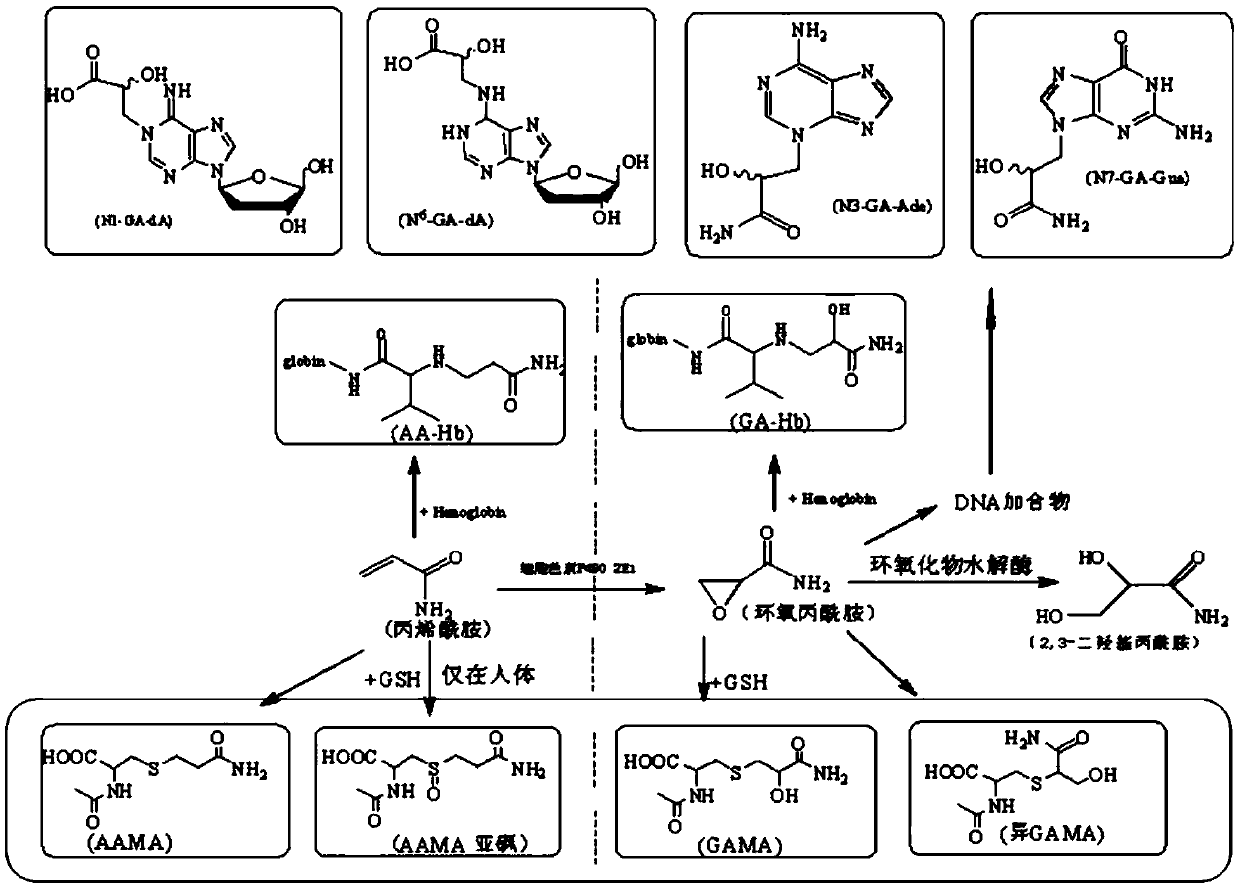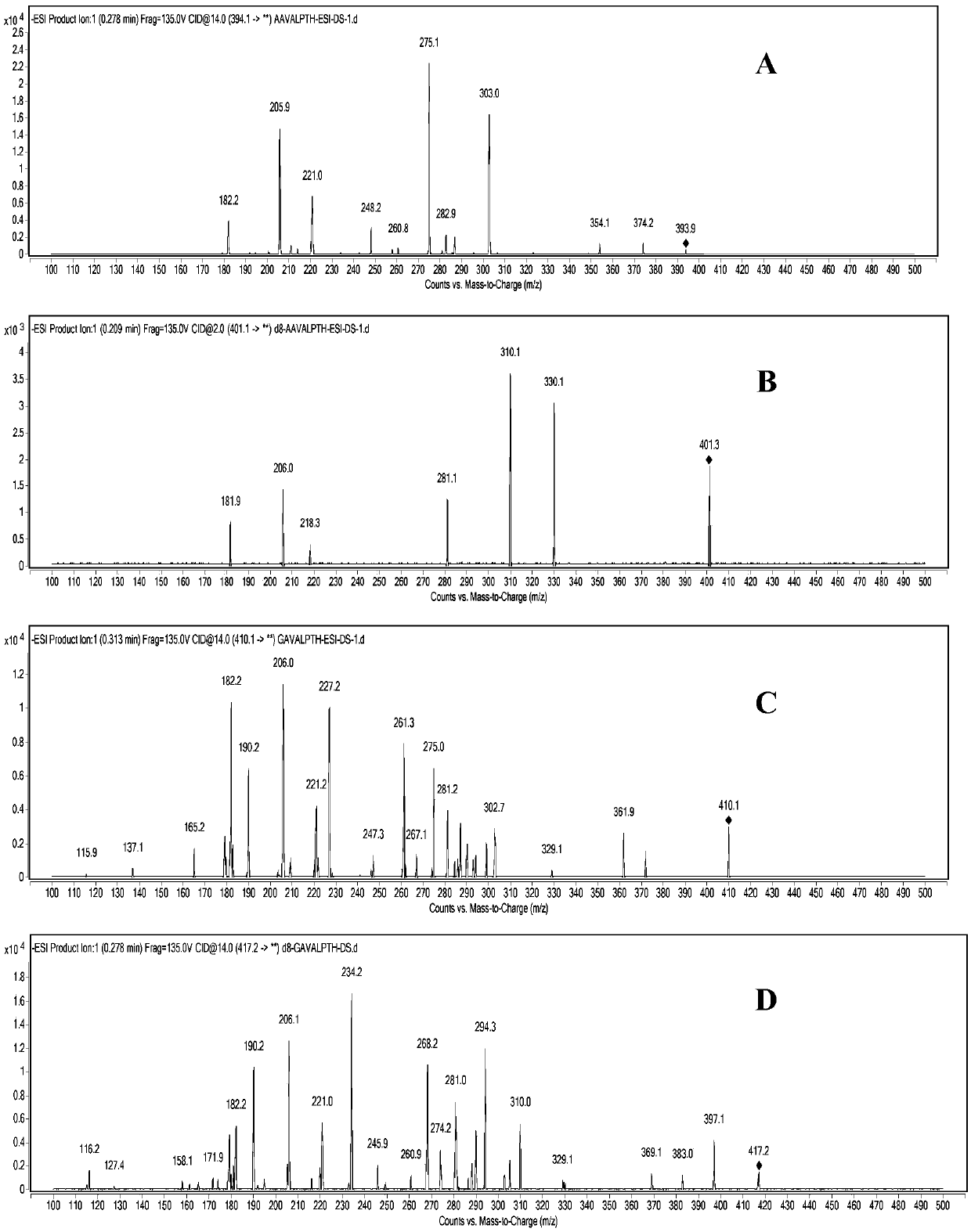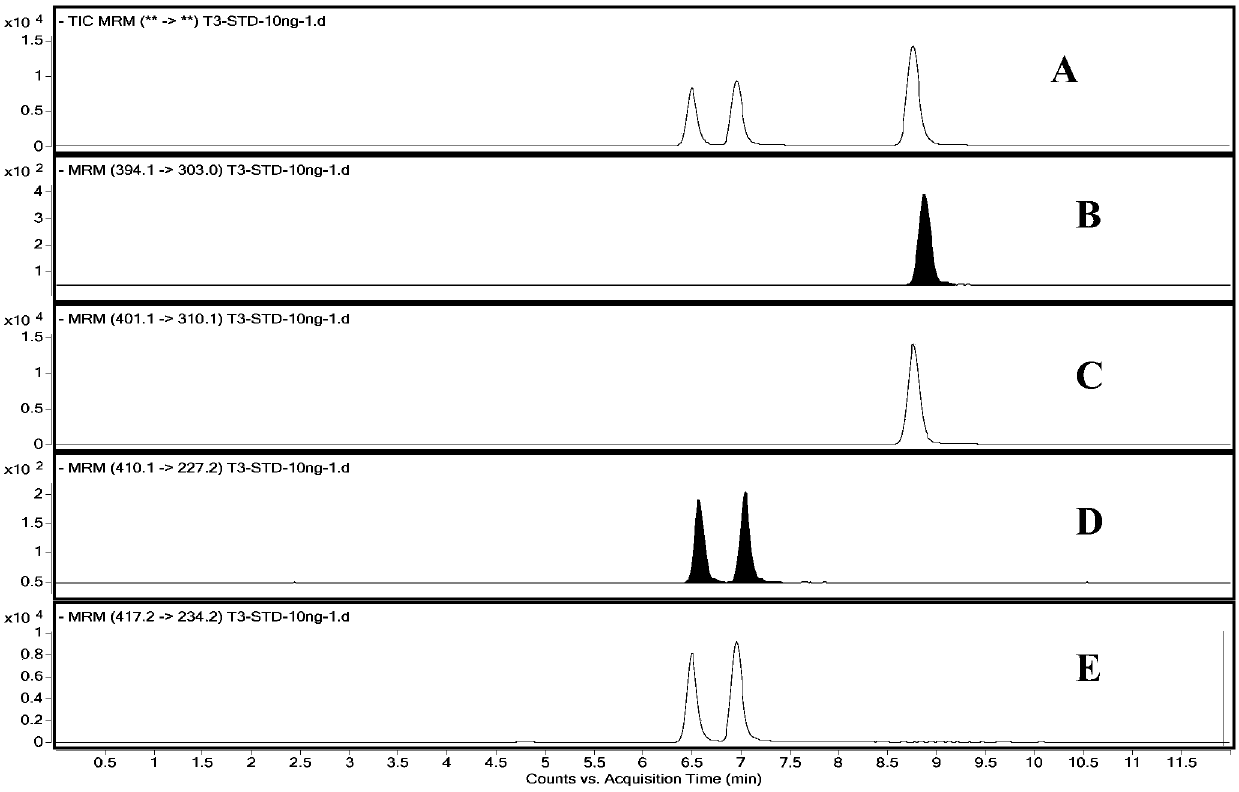Hemoglobin adduct assay method and application for evaluating acrylamide exposure in vivo
A technology of acrylamide and hemoglobin, which is applied in measurement devices, instruments, scientific instruments, etc., can solve the problems of limited detection sensitivity, lengthy processing operations, unfavorable for the detection and detection of large quantities of biological samples, etc., and achieve high precision and high sensitivity. Effect
- Summary
- Abstract
- Description
- Claims
- Application Information
AI Technical Summary
Problems solved by technology
Method used
Image
Examples
Embodiment 1
[0112] Embodiment 1. A method for synchronous detection of hemoglobin adducts for evaluating long-term in vivo exposure to dietary acrylamide. The detection object is rat blood, and the following steps are performed in sequence:
[0113] 1), preparation of dry hemoglobin powder
[0114] Centrifuge 5 mL of the whole blood sample in the anticoagulant tube at 3500 rpm for 5 min, remove the supernatant (plasma) and the middle layer (white film), add 3 mL of PBS solution or normal saline to the red blood cells remaining in the lower layer, and use Pipet the dropper evenly, suck off the supernatant, centrifuge at 3000rpm for 5min, repeat washing 3 times, and obtain 2mL red blood cells.
[0115] Take 1 mL of red blood cells, transfer them to a centrifuge tube, add pure water (5 ml) to dilute the red blood cells 6 times, vortex and shake for 10 min, and put them in a -80°C refrigerator for 2 h. Afterwards, hemolysate was obtained by thawing in a water bath at 37°C. Add 20 mL of acid...
Embodiment 2
[0141] Example 2. A method for synchronous detection of hemoglobin adducts in the long-term in vivo exposure of dietary acrylamide. The detection object is rat blood, and the following steps are performed in sequence:
[0142] 1), preparation of dry hemoglobin powder:
[0143] The method for preparing red blood cells refers to Example 1.
[0144] Take 0.8 mL of the prepared red blood cells, transfer them to a centrifuge tube, add pure water to dilute the red blood cells 5 times, vortex and shake for 10 min, and put them into a -80°C refrigerator for 1.5 h. Afterwards, hemolysate was obtained by thawing in a water bath at 37°C. Add 16 mL of acidified isopropanol solution to the hemolysis, and centrifuge at 4500 rpm for 5 min. Transfer the dark red supernatant to another centrifuge tube, add 16 mL of ethyl acetate, vortex for 8 min, place in a refrigerator at 4°C for 3.5 h to precipitate protein, then centrifuge at 4500 rpm for 8 min, and discard the supernatant. Add 16mL of ...
Embodiment 3
[0157]Example 3. A method for synchronous detection of hemoglobin adducts in the long-term in vivo exposure of dietary acrylamide. The detection object is human blood, and the following steps are performed in sequence:
[0158] 1) Preparation of dry hemoglobin powder
[0159] The blood of the crowd was collected in anticoagulant tubes, and the red blood cell pretreatment and dry hemoglobin powder were prepared. The processing method was the same as step 1) of Example 1.
[0160] 2) Derivation and purification
[0161] This embodiment is a human blood sample, 20 μL of mixed isotope internal standard is added, the concentrations of d8-AAVal-PTH and d8-GAVal-PTH are both 1 μg / mL, and the rest is the same as step 2) of Example 1.
[0162] 3) Chromatographic conditions
[0163] Identical to step 3) of embodiment 1.
[0164] 4) Mass spectrometry conditions
[0165] Identical to step 4) of embodiment 1.
[0166] 5) Results
[0167] The samples were quantified by the standard cu...
PUM
| Property | Measurement | Unit |
|---|---|---|
| volume | aaaaa | aaaaa |
| volume | aaaaa | aaaaa |
Abstract
Description
Claims
Application Information
 Login to View More
Login to View More - R&D
- Intellectual Property
- Life Sciences
- Materials
- Tech Scout
- Unparalleled Data Quality
- Higher Quality Content
- 60% Fewer Hallucinations
Browse by: Latest US Patents, China's latest patents, Technical Efficacy Thesaurus, Application Domain, Technology Topic, Popular Technical Reports.
© 2025 PatSnap. All rights reserved.Legal|Privacy policy|Modern Slavery Act Transparency Statement|Sitemap|About US| Contact US: help@patsnap.com



